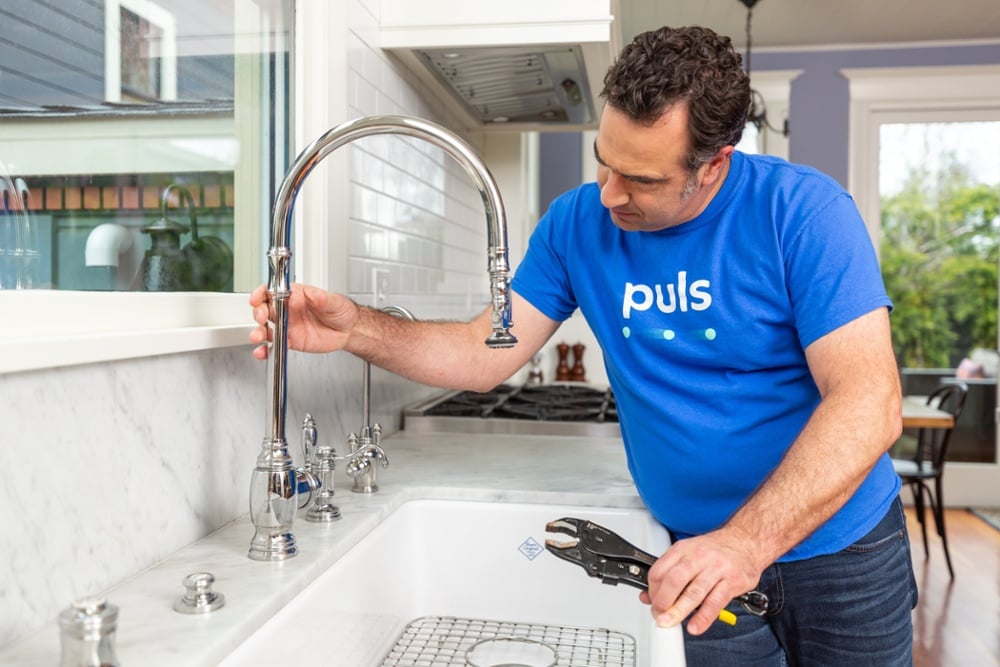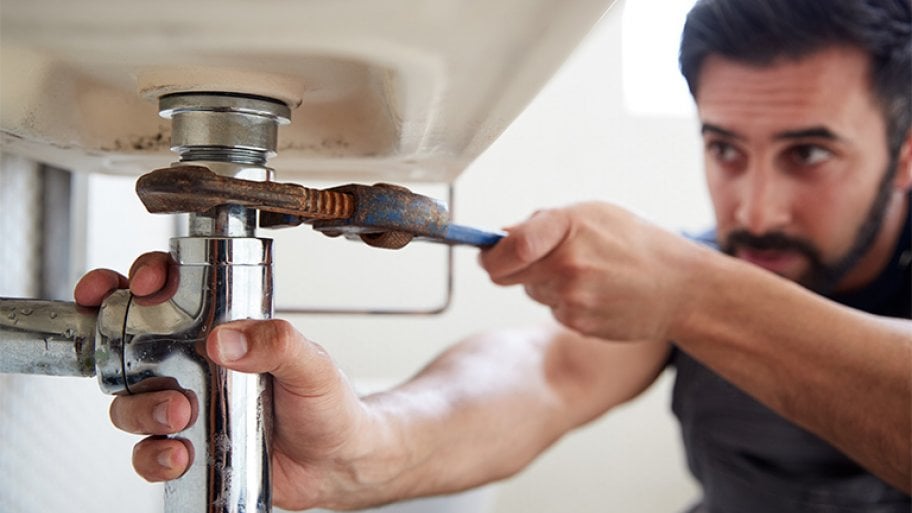Plumbing Noises You Need To Know About
Plumbing Noises You Need To Know About
Blog Article
Just how do you feel with regards to Why Do My Plumbing Pipes Make A Knocking Noise?

To identify noisy plumbing, it is important to determine first whether the unwanted sounds occur on the system's inlet side-in other words, when water is transformed on-or on the drainpipe side. Sounds on the inlet side have actually differed reasons: extreme water stress, used shutoff and also tap components, poorly connected pumps or other appliances, incorrectly placed pipeline bolts, as well as plumbing runs containing too many tight bends or other constraints. Noises on the drain side usually stem from poor location or, similar to some inlet side sound, a format containing limited bends.
Hissing
Hissing sound that takes place when a tap is opened a little normally signals extreme water pressure. Consult your regional water company if you think this problem; it will be able to inform you the water stress in your location as well as can set up a pressurereducing valve on the incoming water supply pipeline if essential.
Various Other Inlet Side Noises
Squeaking, squeaking, scratching, snapping, and also touching typically are brought on by the expansion or contraction of pipelines, normally copper ones supplying hot water. The sounds take place as the pipelines slide against loose bolts or strike neighboring house framework. You can often determine the place of the issue if the pipes are exposed; just comply with the sound when the pipelines are making sounds. Probably you will certainly uncover a loosened pipe hanger or a location where pipes lie so close to flooring joists or other framing pieces that they clatter versus them. Connecting foam pipeline insulation around the pipes at the point of contact need to correct the issue. Make certain straps and wall mounts are safe and also supply sufficient assistance. Where feasible, pipe bolts ought to be attached to substantial structural components such as foundation wall surfaces rather than to mounting; doing so minimizes the transmission of vibrations from plumbing to surface areas that can enhance and also transfer them. If affixing fasteners to framework is inevitable, wrap pipelines with insulation or various other durable material where they call fasteners, and also sandwich the ends of brand-new fasteners in between rubber washers when mounting them.
Fixing plumbing runs that suffer from flow-restricting limited or numerous bends is a last hope that should be taken on only after getting in touch with a knowledgeable plumbing contractor. Regrettably, this scenario is fairly usual in older houses that might not have actually been built with indoor plumbing or that have actually seen numerous remodels, especially by novices.
Babbling or Shrilling
Extreme chattering or screeching that happens when a shutoff or faucet is switched on, which usually vanishes when the installation is opened fully, signals loose or faulty inner parts. The solution is to replace the shutoff or tap with a brand-new one.
Pumps and also appliances such as washing makers and also dishwashers can transfer electric motor sound to pipes if they are improperly linked. Connect such things to plumbing with plastic or rubber hoses-never rigid pipe-to isolate them.
Drainpipe Noise
On the drainpipe side of plumbing, the principal objectives are to eliminate surfaces that can be struck by dropping or rushing water as well as to shield pipelines to contain unavoidable sounds.
In new construction, bathtubs, shower stalls, bathrooms, as well as wallmounted sinks as well as basins ought to be set on or against resilient underlayments to decrease the transmission of audio via them. Water-saving toilets as well as faucets are much less loud than standard designs; install them instead of older types even if codes in your area still permit utilizing older fixtures.
Drains that do not run up and down to the cellar or that branch right into straight pipe runs sustained at flooring joists or various other mounting existing particularly problematic noise problems. Such pipes are large sufficient to emit significant vibration; they also lug substantial quantities of water, which makes the situation worse. In brand-new building, specify cast-iron soil pipelines (the huge pipes that drain toilets) if you can manage them. Their enormity includes much of the sound made by water travelling through them. Likewise, avoid transmitting drainpipes in walls shared with rooms and also areas where individuals gather. Walls containing drainpipes need to be soundproofed as was defined earlier, using double panels of sound-insulating fiber board and also wallboard. Pipelines themselves can be wrapped with special fiberglass insulation created the objective; such pipelines have an impervious vinyl skin (occasionally having lead). Outcomes are not always acceptable.
Thudding
Thudding sound, commonly accompanied by trembling pipes, when a tap or home appliance valve is switched off is a problem called water hammer. The noise and resonance are triggered by the reverberating wave of stress in the water, which unexpectedly has no place to go. Sometimes opening up a valve that releases water promptly into a section of piping containing a constraint, elbow joint, or tee fitting can generate the exact same problem.
Water hammer can normally be treated by mounting installations called air chambers or shock absorbers in the plumbing to which the problem shutoffs or faucets are attached. These gadgets allow the shock wave developed by the halted flow of water to dissipate airborne they include, which (unlike water) is compressible.
Older plumbing systems might have brief vertical areas of capped pipe behind wall surfaces on faucet competes the same objective; these can eventually loaded with water, decreasing or destroying their effectiveness. The cure is to drain pipes the water supply totally by shutting down the primary water system shutoff as well as opening all taps. Then open up the primary supply shutoff and shut the taps one at a time, beginning with the tap nearest the valve and also ending with the one farthest away.
Pipe Down! What to Do About Noisy Water Pipes
Banging
Does it sound like someone's hitting your pipes with a hammer every time you run water? The issue could be a phenomenon called water hammer, which happens when a water valve closes suddenly. You'll often hear it when your washing machine stops filling, for example. The momentum and pressure from the water flowing toward the valve create the shockwave that causes the banging noise when the valve closes suddenly. It might not seem like a big deal, but water hammer can cause damage to your pipes, including leaks and joint damage.
One way to ease water hammer is by installing water hammer arrestors. Your plumber can install them near major valves to help cushion the shock of the water when it suddenly stops or changes direction. You might also need to reduce the water pressure coming into your home with the pressure-reducing valve.
Gurgling
Gurgling sounds typically come from drainpipes. This sound happens when the water can't drain properly, usually when there's a clog in the water pipes. Drain clogs often happen due to hair, grease, soap scum or objects that fall down the drain. They can happen suddenly or build up slowly over time.
You can sometimes clear a clogged drainpipe with a plunger to help force the clog through the pipe. A plumbing snake or an auger can also help break up tough clogs. A common plumbing myth is that chemical drain cleaners are safe and effective, but they often don't work and contain harsh chemicals that can hurt you and your plumbing. If you can't remove the clog with a plunger or snake, it's best to call a plumber to help.
Rattling
Water travels through your pipes with lots of pressure, so the pipes are bound to move a little. Pipes should be secured well to keep them from moving too much when water runs through them. If they're not properly fastened or the fasteners come loose, you might hear them rattling when you run water.
Resecuring the pipes can cut down on the rattling noise and prevent damage to the joints of the water pipes. However, many pipes run behind walls where you can't easily access them. A plumber can help determine if loose fasteners are the cause of the rattling and resecure them if necessary.
Humming
If your pipes sound like they're humming, it's likely a water pressure issue. When the water pressure is high, it can cause the water pipes to vibrate and create a humming sound. High water pressure is more common if you have a well for your water, but it can happen with municipal water as well. High water pressure can damage your plumbing and cause leaks.
If you have a well, check the pressure to ensure it's below 55 pounds per square inch. A plumber can test the pressure for you and help adjust the issue if you're not sure how to do it yourself. If you're connected to the municipal water source, your home likely has a pressure-reducing valve near where the water enters your home. You can adjust the screw in the valve to decrease the pressure, but be careful not to lower it too much.
Squeaking
Squeaking or squealing is another common sound you'll hear in your water pipes. This often happens if small components within the plumbing, such as washers or aerators, become loose, dirty or damaged. When this is the cause, the squeaking sound is usually confined to a certain fixture or area of plumbing. Replaced or repairing the part should solve the noise.
If you can hear the squealing sound everywhere in your home, it could be an issue with water pressure. Buildup in the pipes narrows the space for the water, which can cause squealing as the water tries to squeeze through the pipes. Wear and tear on the plumbing system can also cause whistling or squeaking. These situations typically require a professional plumber to diagnose and repair.
https://www.homeserve.com/en-us/blog/home-improvement/water-pipes-making-noise/

As an avid reader on Why Do My Pipes Make Noises, I think sharing that piece of writing was a good thing. Do you know about someone else who is truly interested in the niche? Take a moment to share it. We take joy in reading our article about Why Do My Plumbing Pipes Make A Knocking Noise.
Estimate Report this page